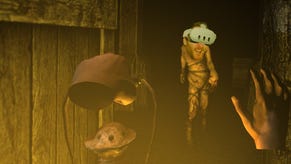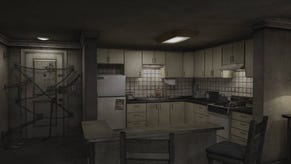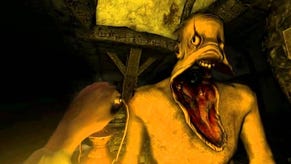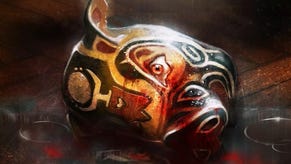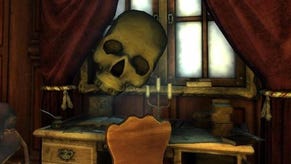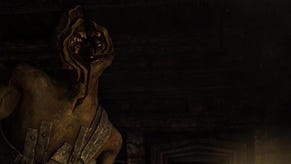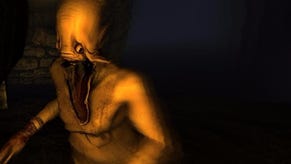Amnesia: The Dark Descent
Thanks for the memories.
Boy does Amnesia nail running away. It nails running away like Mirror's Edge nailed running away, which is a bit of a damning indictment of the latter game, since it was about a sexy free-runner leaping and rolling through the rooftops of a futuristic cityscape, while Amnesia is about a mentally unstable man fumbling doors open and squatting in cupboards. Then again, Mirror's Edge also gave you the option of fighting instead of running. Amnesia doesn't, which is one of the bigger reasons why it's the scariest game I've played in years.
Amnesia's also unusual for a horror game, which as a genre tends to put horror first, panic second, creepiness third and the actual game fourth. With Amnesia, you're also getting an engaging first-person adventure game that could have stood by itself had developer Frictional Games chosen to go that way.
Amnesia's plot alone is intriguing enough. Waking up on the stone floor of some ancient castle with no memory whatsoever except their character's own name ('Daniel'), the player's first discovery is an oddly brief letter from Daniel to Daniel, telling him to descend into the castle's basement and kill a man named Alexander. As you explore the castle further the plot thickens eagerly and ominously, with diaries, rooms and panicked notations all providing scraps of a much larger and more unpleasant picture.
This exploring takes up most of the game, and is made all the more engaging through the same excellent grabbing mechanic Frictional used in its Penumbra titles. You click the mouse to 'grab' objects within the world (a door, a boulder, a drawer), and then move the mouse to interact with that object in an immersive and intuitive way. It's a system that's as beneficial to ransacking somebody's study as it is to turning some dusty, forgotten valve. Or, perhaps more relevantly, slamming a door in the face of a monster. But we'll get to that in a minute.
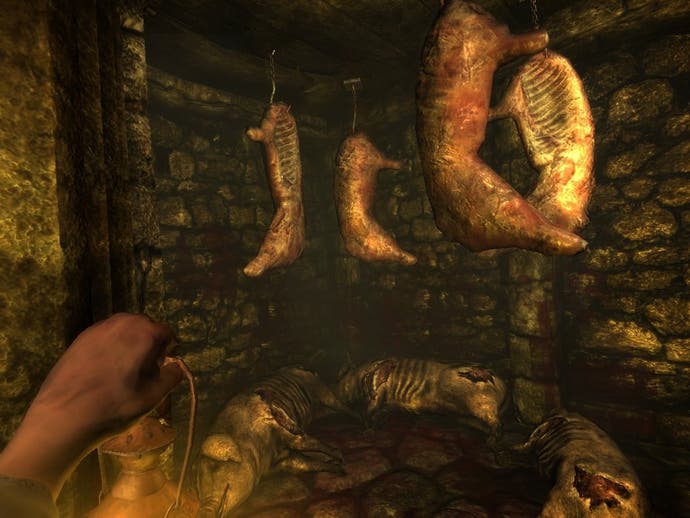
Physics aside, nosing around Amnesia's castle also holds your interest because it constantly rewards you with details, pick-ups, pieces of the story, surprises or varied environmental puzzles which often use that same grab mechanic, if not particularly imaginatively. But what the puzzles lack in inventiveness they make up for in difficulty, with plenty of them sat in a sweet spot where they'll rarely stump you, but still make you feel smart.
If this physics-puzzler-mystery concept was expanded on, I'm sure an awful lot of people would want to play it. But clearly Frictional had other ideas.
It takes balls to do a horror game right. There's a reason that out of all the recent high-profile horror games of late, Dead Space and F.E.A.R. 2 gave you enough weaponry to level whole buildings, Resident Evil 5 and Siren: Blood Curse traded some of their series' spookiness for more gung-ho action, Alone In The Dark featured ludicrously overblown stunt sequences and Alan Wake gave its monsters enough of a weakness that they'd probably qualify for disabled parking stickers. Scaring players is about more than inserting jumpy moments and a quivering string soundtrack into a level lit like a seedy club. It's about a lack of empowerment and control, which is enough of an acquired taste that none of the big publishers will fund it.
Amnesia isn't just a game where you can't fight the monsters. It's a game where you can't look at the monsters. Doing so drains your sanity and increases the chance they'll spot you. Sometimes this not-looking isn't a problem because the monsters are invisible, but in places it's the most horrible thing in the world. Imagine it. You're hiding from a monster in the sole pocket of shadow in a room, and all you can do is stare at the floor.


